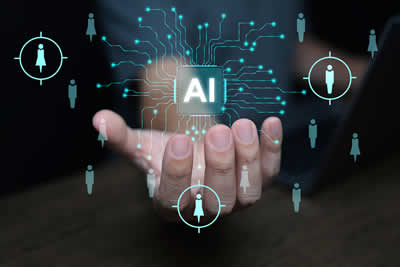Every business that employs people needs an HR system. Whether it's just a few people in a single team, or a big corporation that covers the globe. How else will you deal with salaries, holidays, sickness – dare we mention discipline – unless you keep records. But at its basic level, this relies on paper records and manual processes, which invites errors and omissions.
HR software gets around this, which means that companies of all sizes use HR software to carry out everyday tasks like hiring, payroll, and updating employee records. So instead of spending hours on manual processes, HR teams can concentrate on helping employees succeed. It's also easier to access information from anywhere, which is especially useful for businesses with teams in different locations.

How HR Software Works in the Cloud
It's now possible to base HR software in the cloud. Unlike traditional HR systems that need to be installed on office computers, cloud-based platforms store everything securely online.
They usually include features for payroll, hiring, employee records, and time tracking - all in one place. And because updates happen automatically, there are no worries about maintaining software or dealing with outdated versions. Cloud-based
affordable HR software makes it a breeze for companies to stay organized, reduce administrative work, and keep processes running smoothly, no matter where their team is located.
How Cloud-Based HR Helps Businesses Grow
HR is more than just processing forms! It plays a big role in guiding the culture within the workplace, and keeping staff engaged. And when it's based in the cloud, companies don't have to worry about losing important records or dealing with outdated spreadsheets. Even for small businesses, this is a cost-effective way to stay on top of HR tasks without the need for a specialized team.
Saving Time with Automation and Integration
Cloud-based HR tools
take care of repetitive tasks. This doesn't only save time but it also helps prevent the kind of mistakes that can cause severe disruption – things like delays with salary payments or compliance issues. Many software tools also connect with other applications, making it easier for different departments to work together.

Keeping Employee Data Secure
As we all know, HR systems handle a lot of sensitive information – payroll and personal records, as well as company policies – and this makes data security a top priority. In fact, before any benefits are considered, a company must be confident that all this data is protected from breaches or unauthorized access.
The best platforms out there use encryption, secure logins, and regular security updates to stay safe. And it's a good idea to choose a provider that follows industry standards like GDPR or SOC 2 compliance.
Choosing the Right HR Software
When choosing an HR system, any business must look for something that fits their size and needs. For example, some software comes with extra features like employee self-service portals, performance tracking, and automated reporting. And a
study by LinkedIn found that businesses that used digital HR tools have better employee retention and a more organized workplace. But although small companies want software that simplifies HR tasks, higher level solutions are likely to be too complicated and/or expensive for them.
Building a Better Workplace
But, believe it or not, a good HR system isn't just about efficiency: it also helps to create an environment where employees feel supported. And with everything from payroll to performance reviews in one place, HR staff are able to spend more time on “higher level” activities like employee training, team building and professional growth.

Looking at it from the employees' side, it's easier for them to find the information they need, whether it's about benefits, vacation policies, or career opportunities. In other words, the right tools make HR more manageable, helping it to run more smoothly … and keeping everyone happy in the long run.
Final Thoughts
We hope we've made it clear that cloud-based HR solutions are no longer just for big corporations. Businesses of all sizes are able to use them to manage day-to-day operations, support their employees, and stay organized. By moving much of the HR function online, companies can create a much more efficient and people-focused workplace.
So whether you're running a small startup or an established company, having HR software that meets your needs will help to keep everything on track and – most important – under control!



























